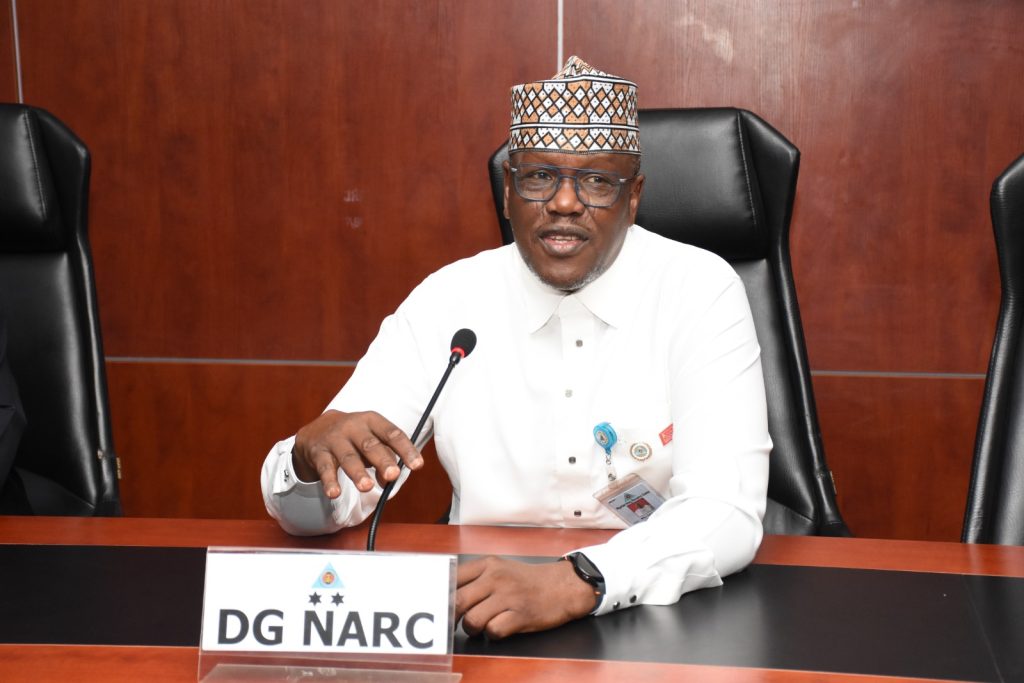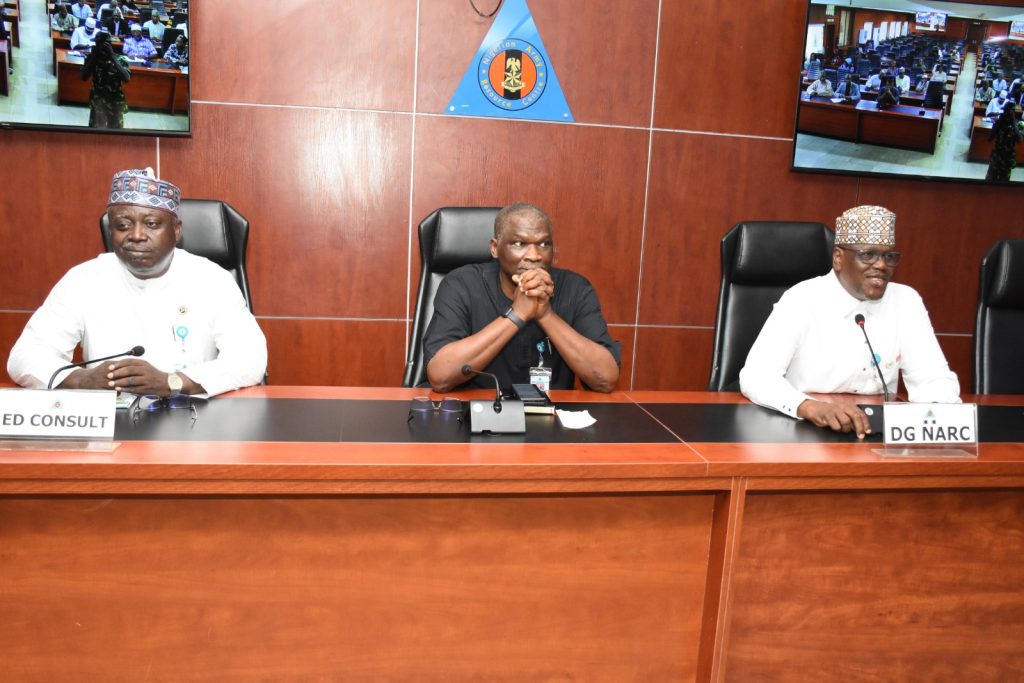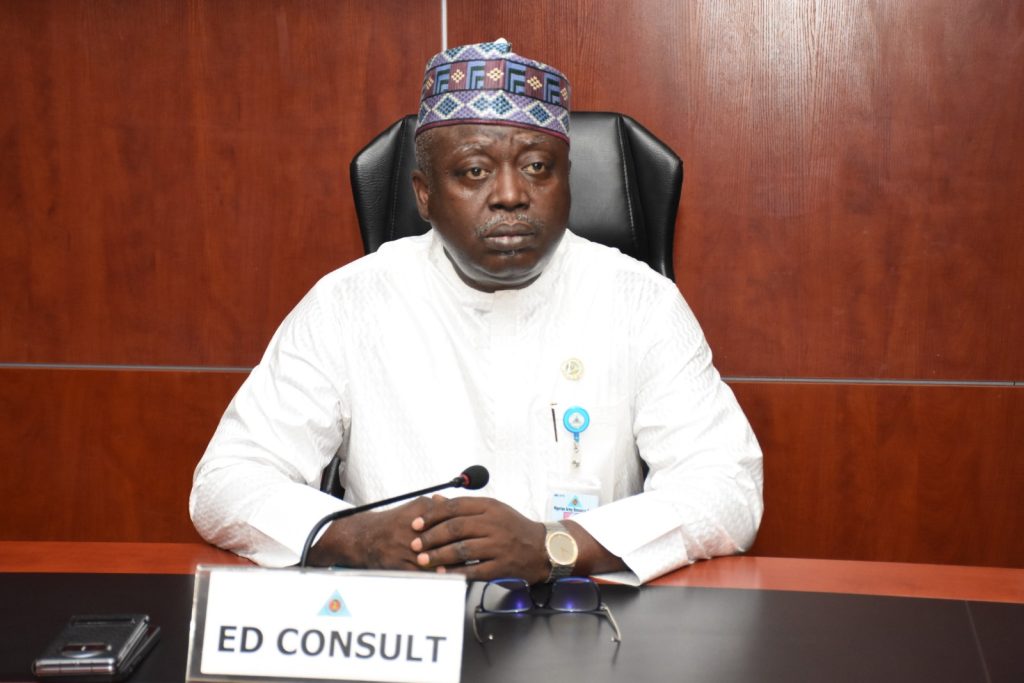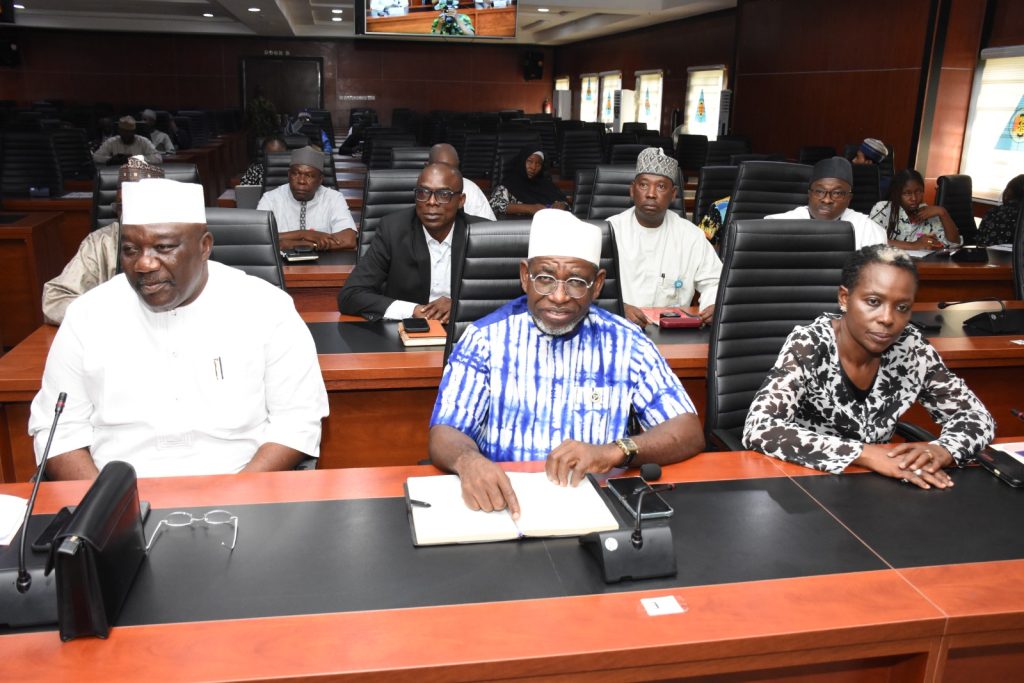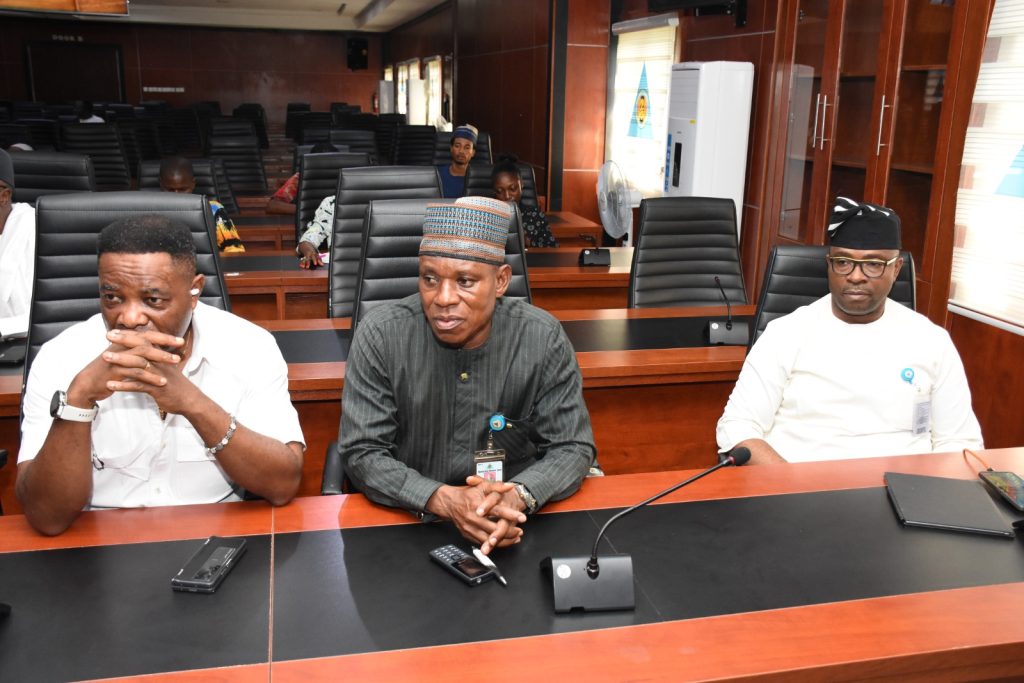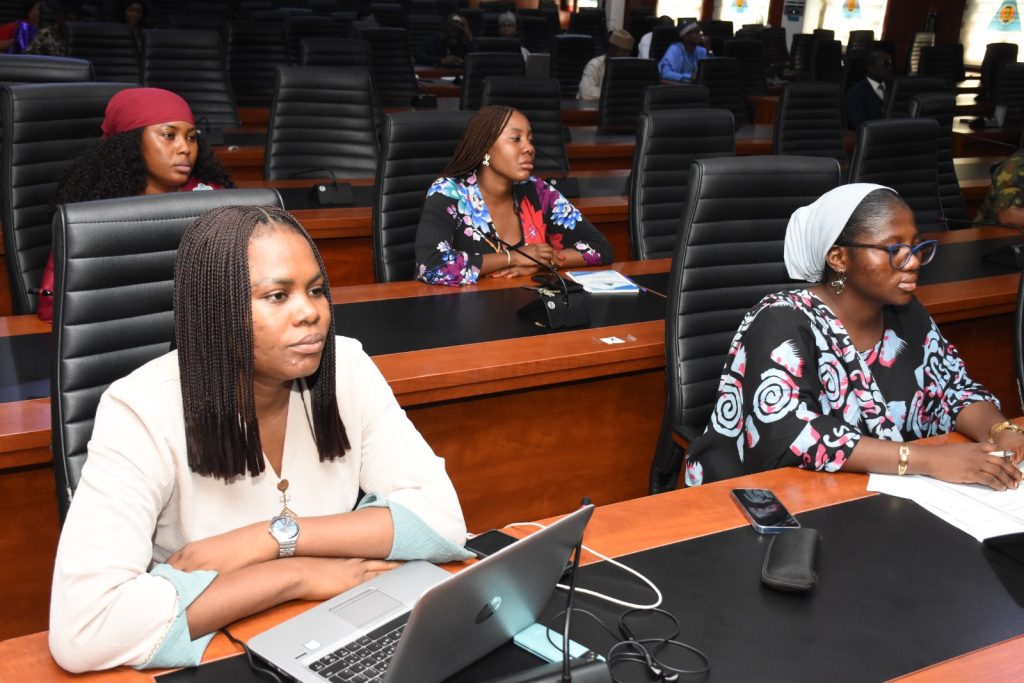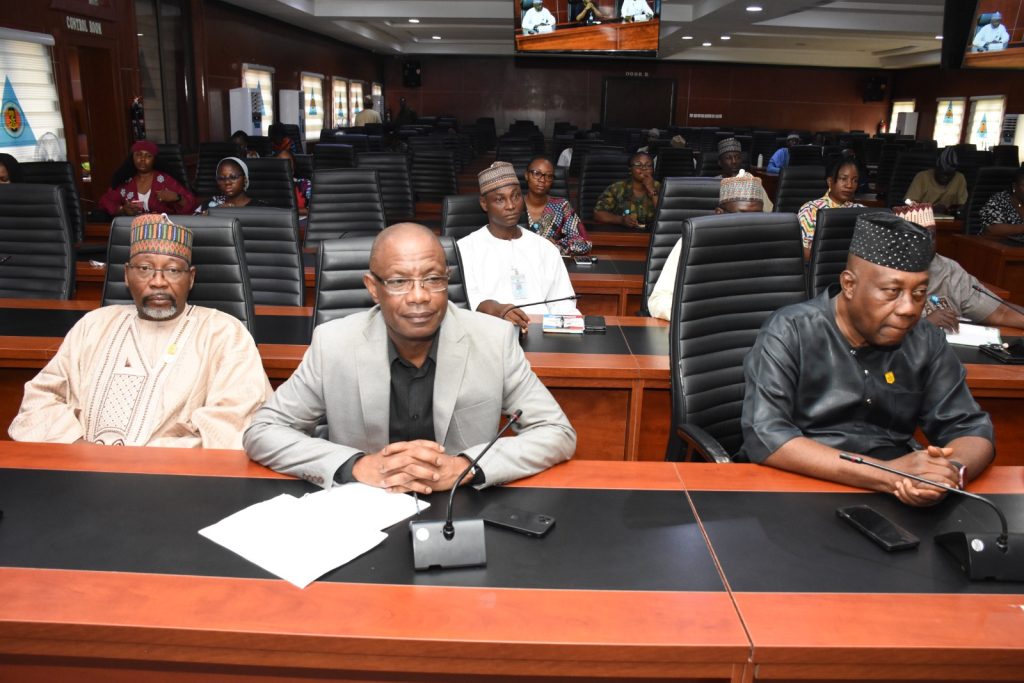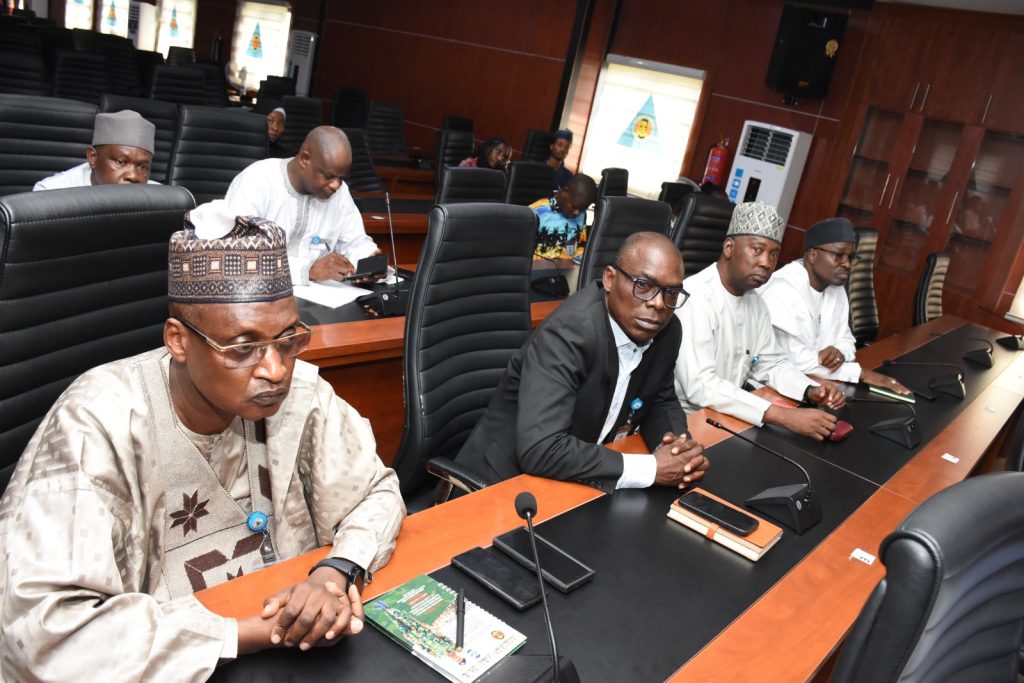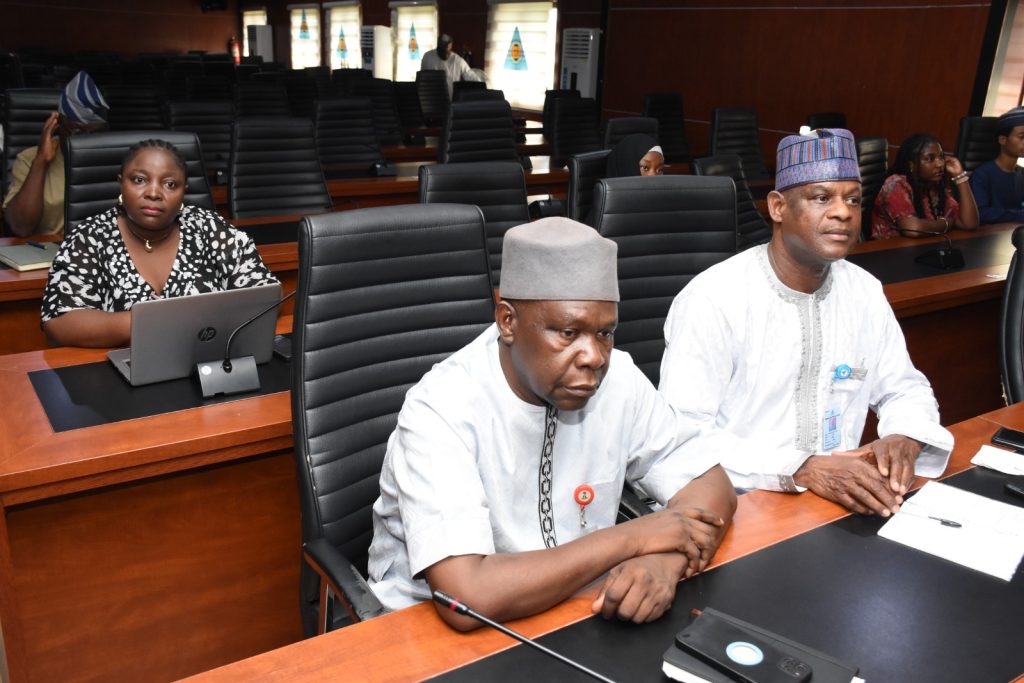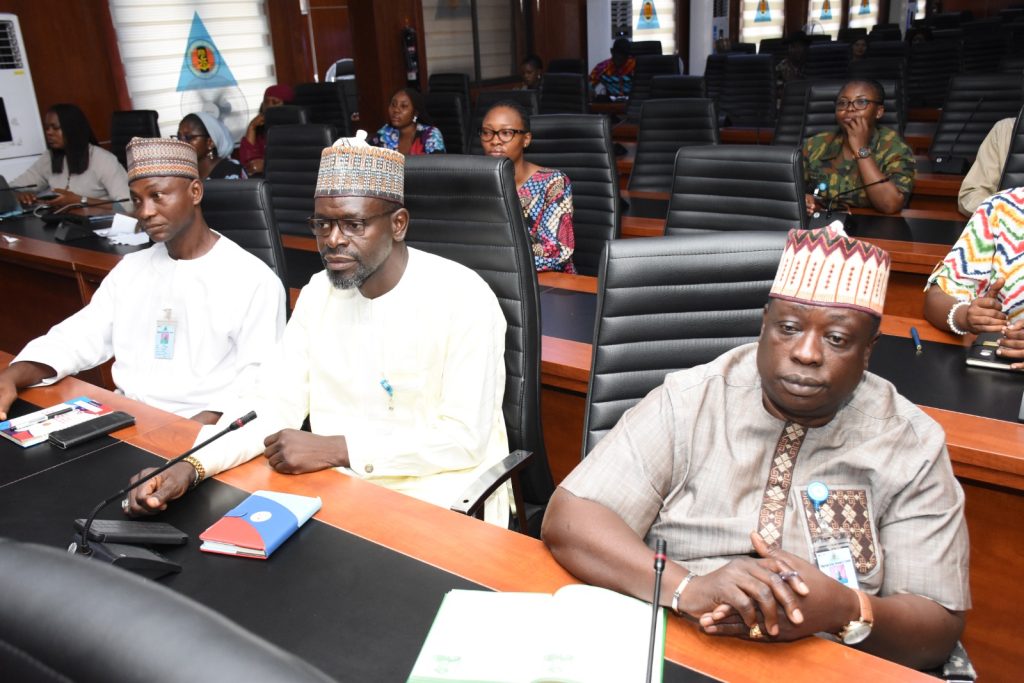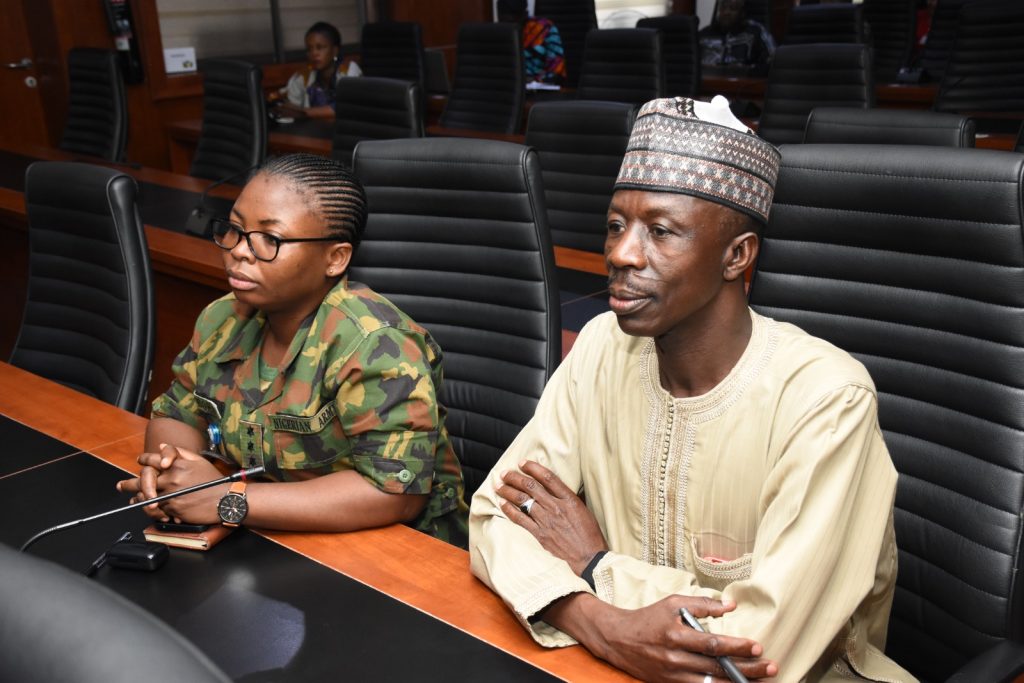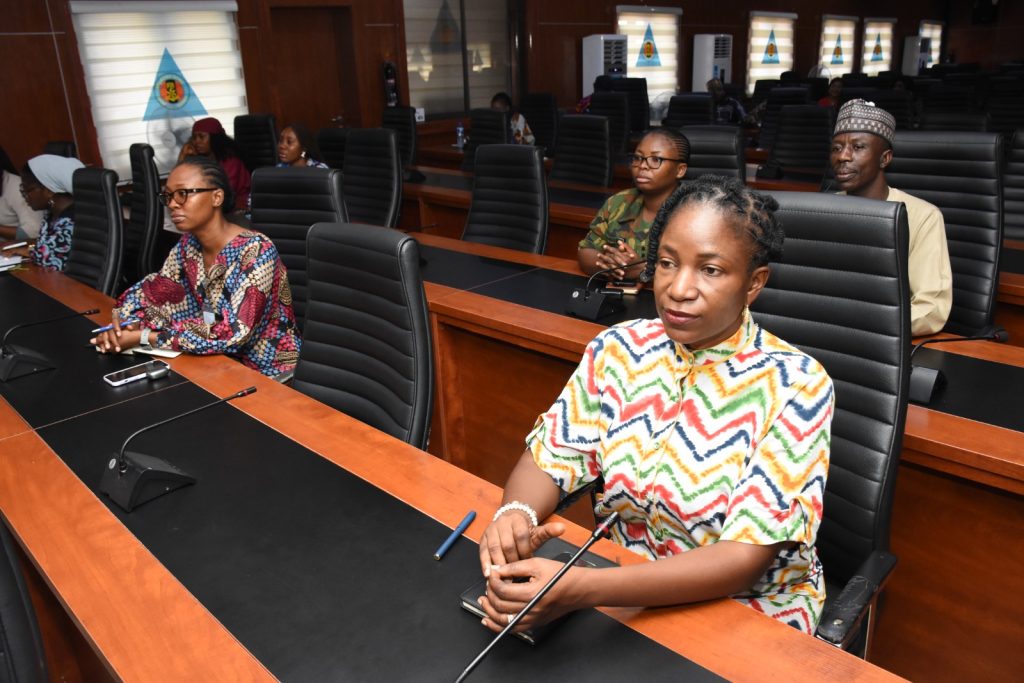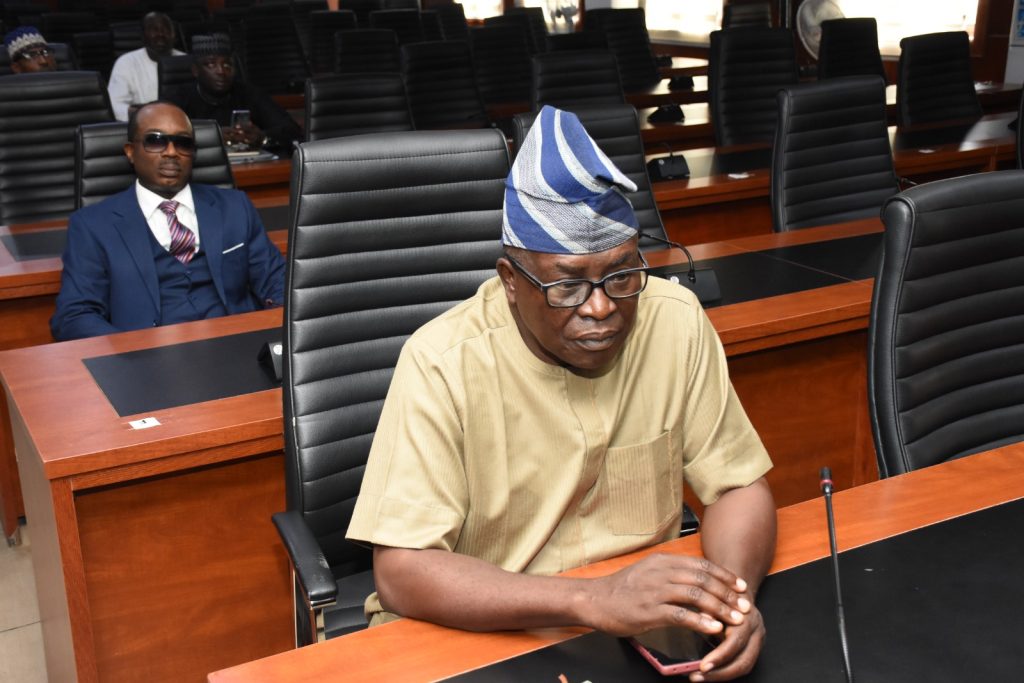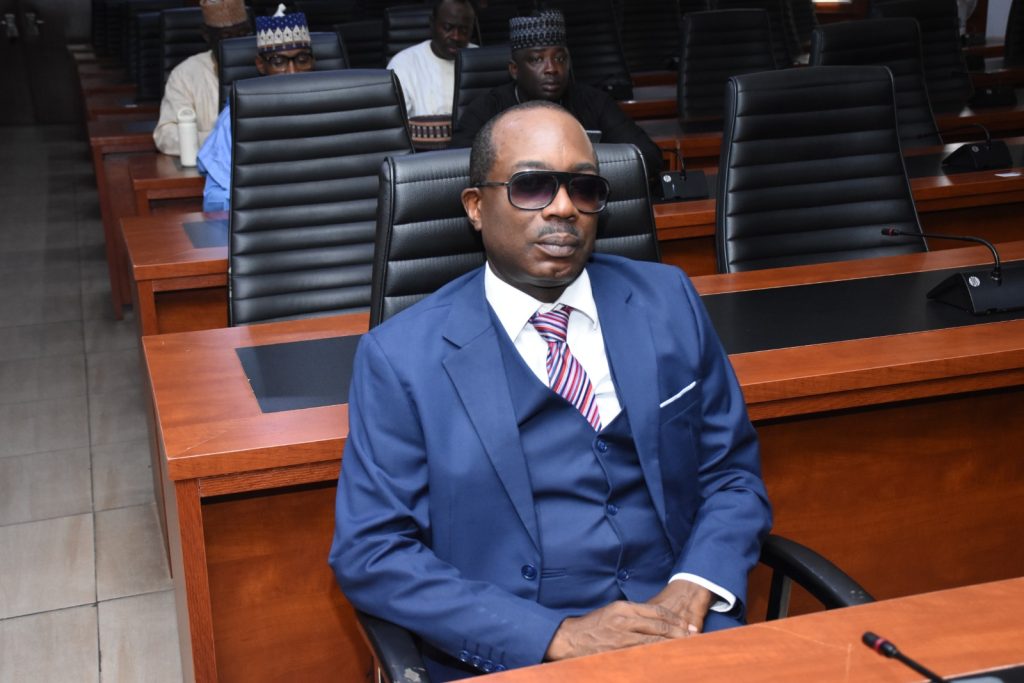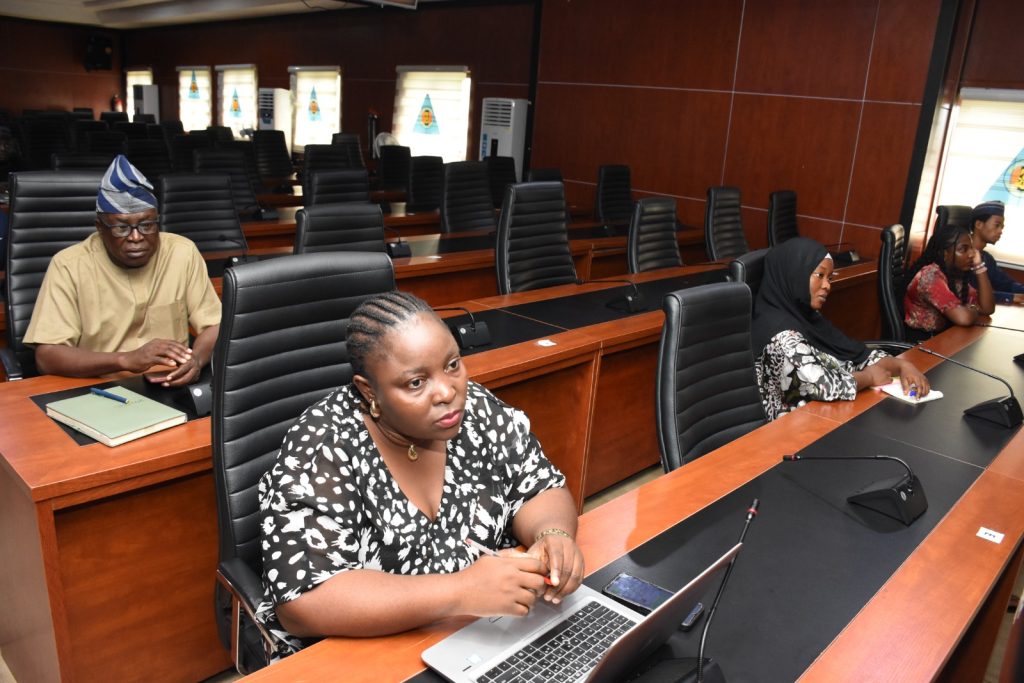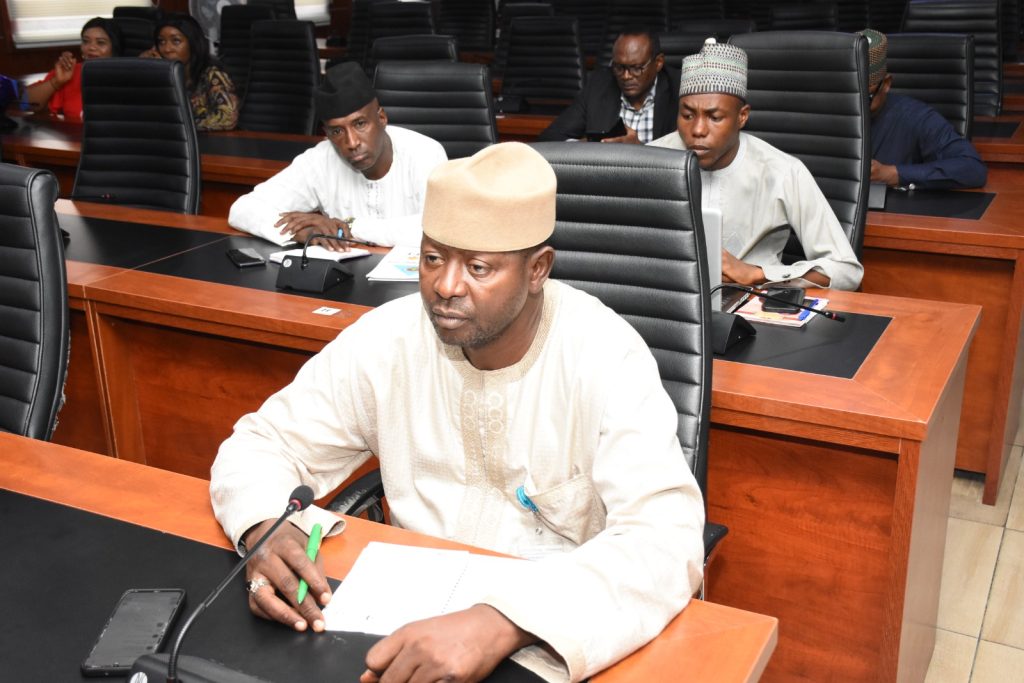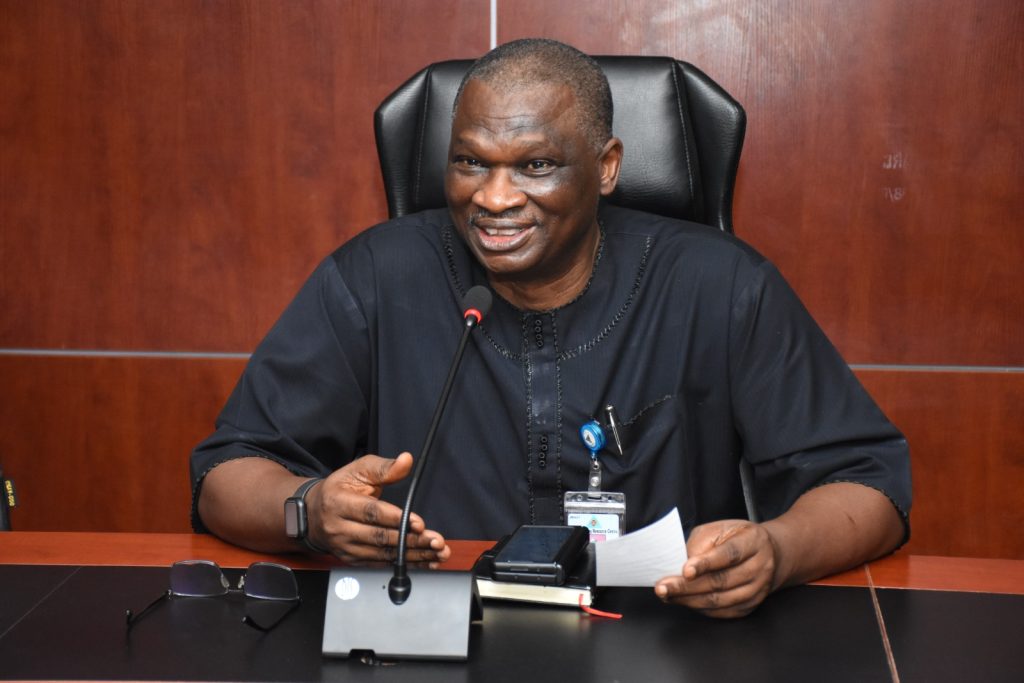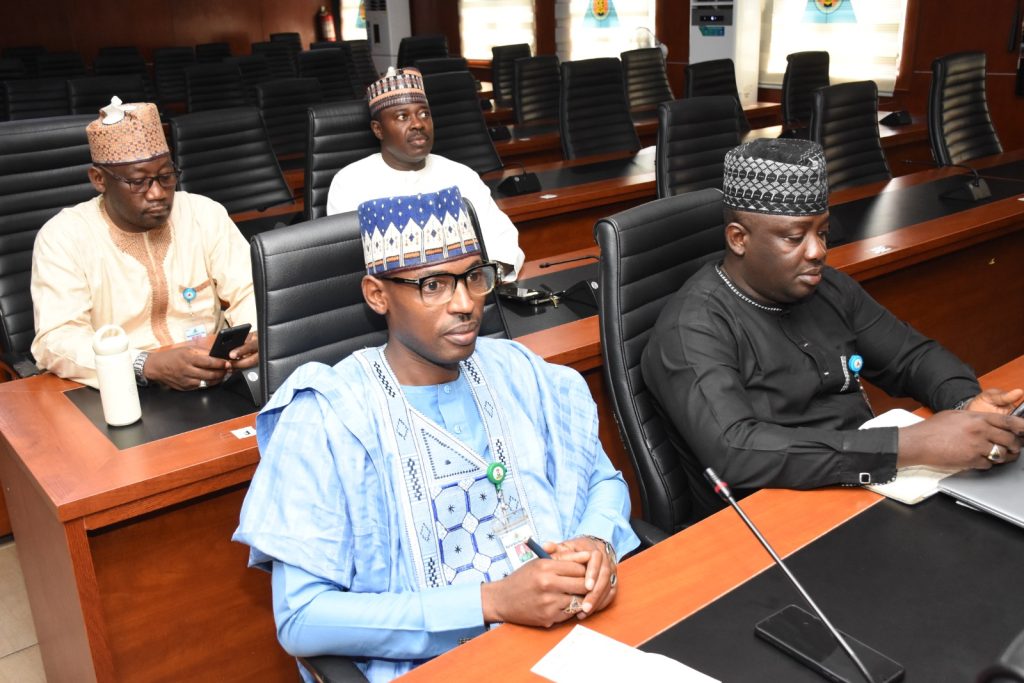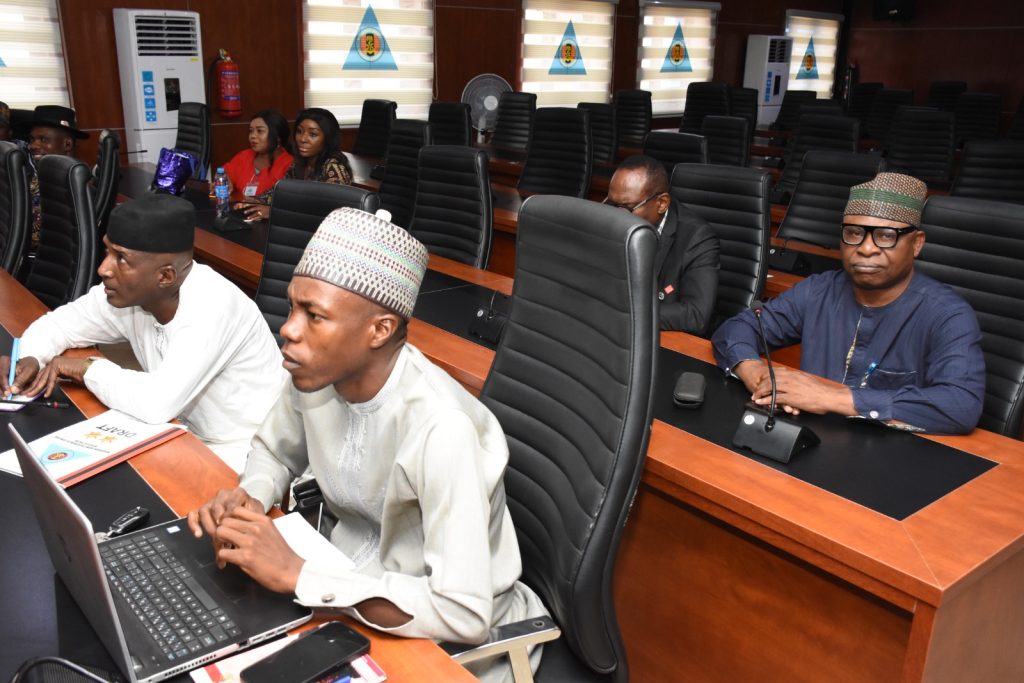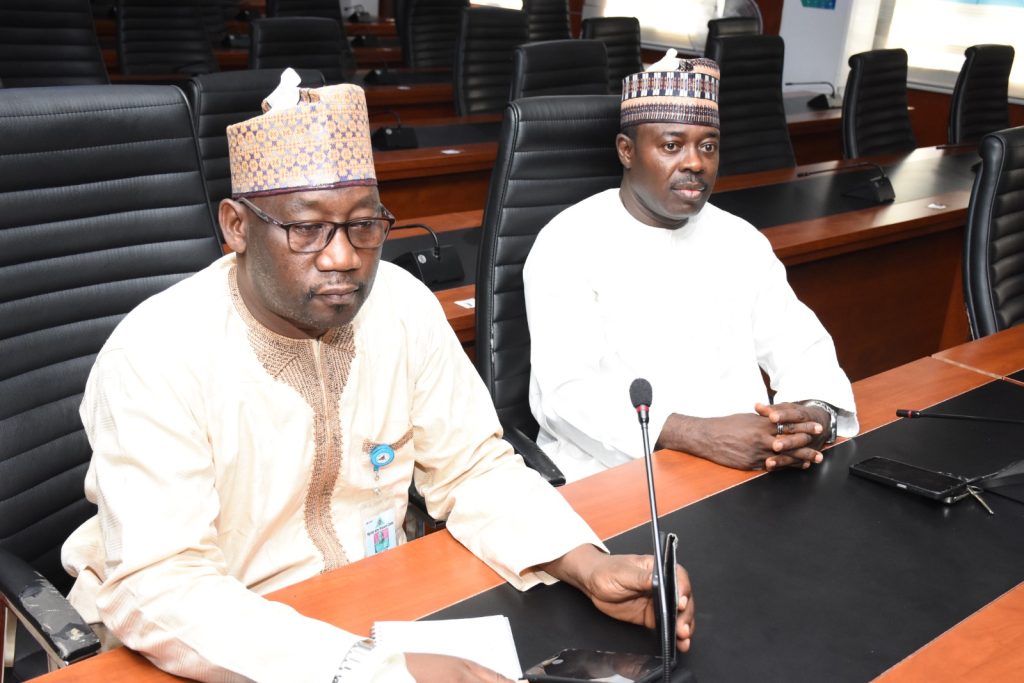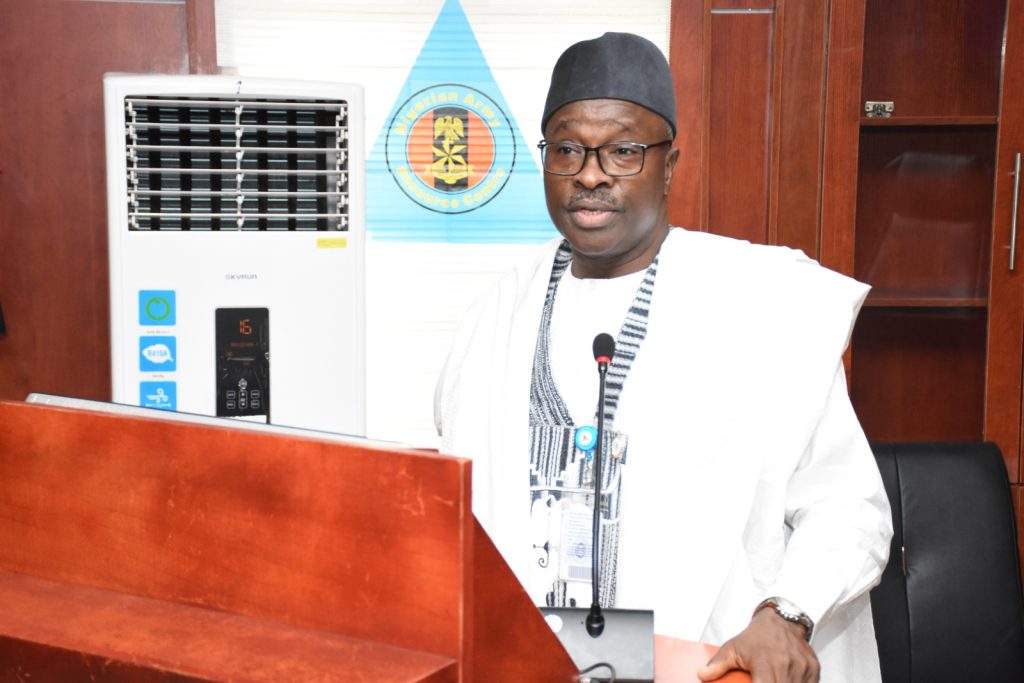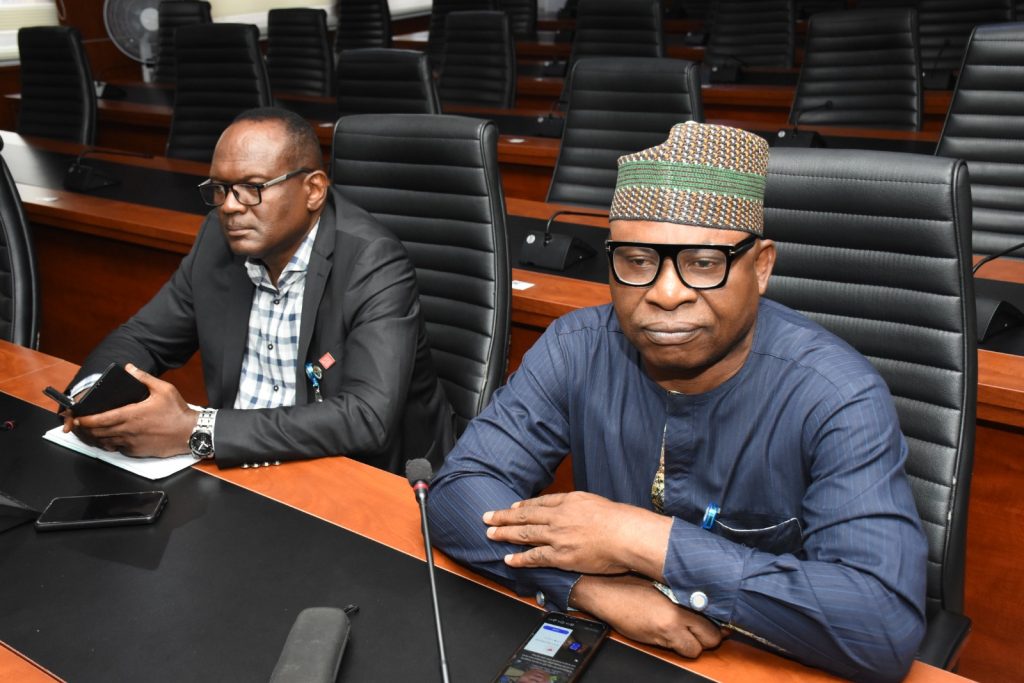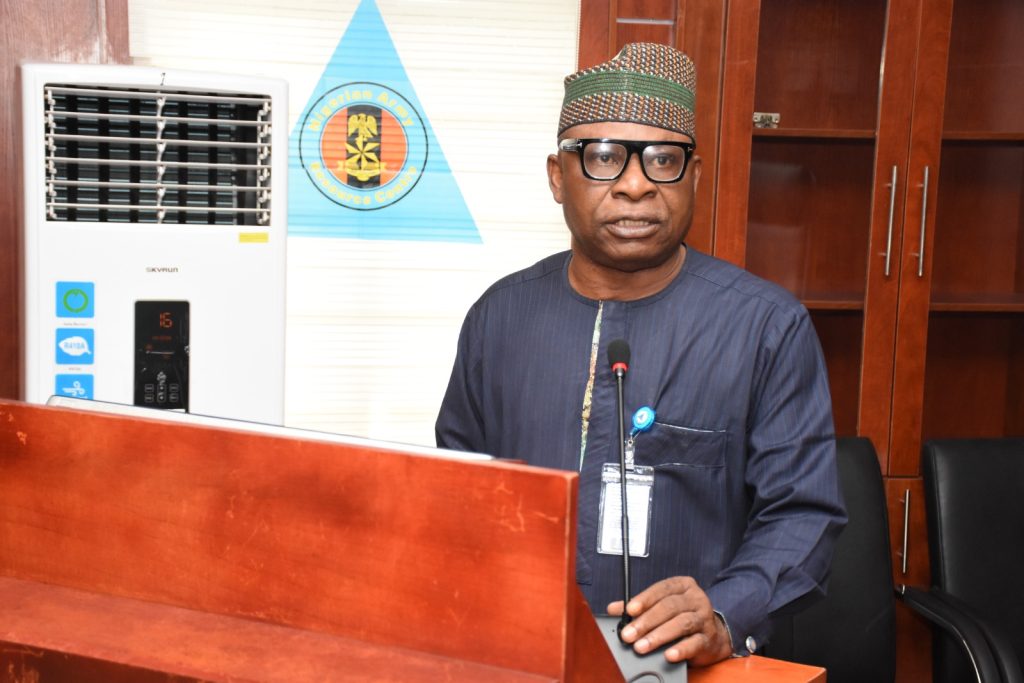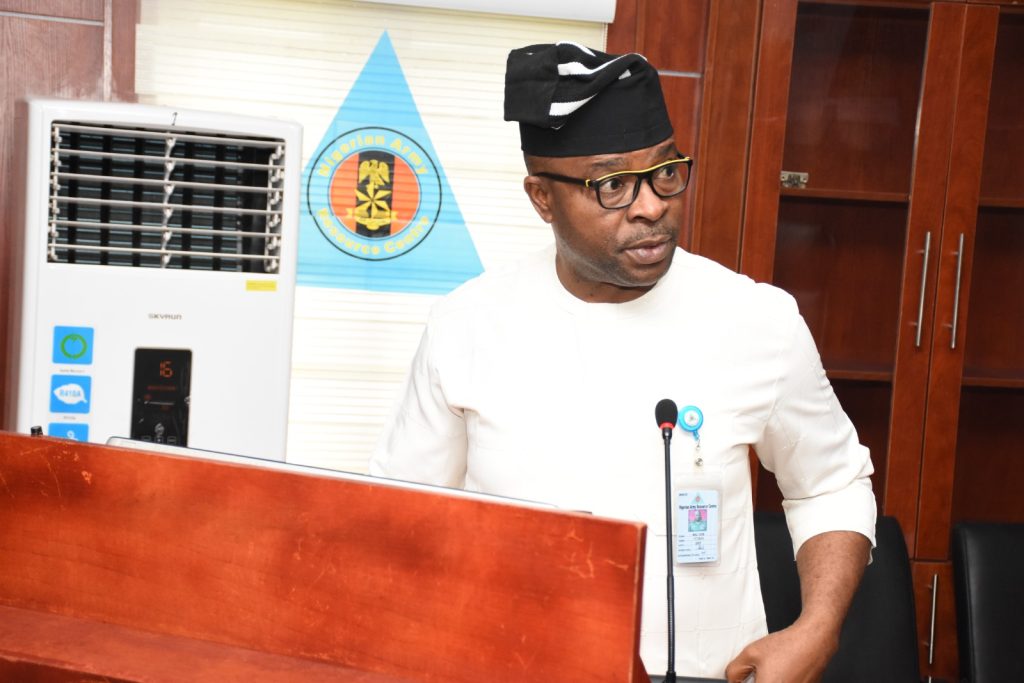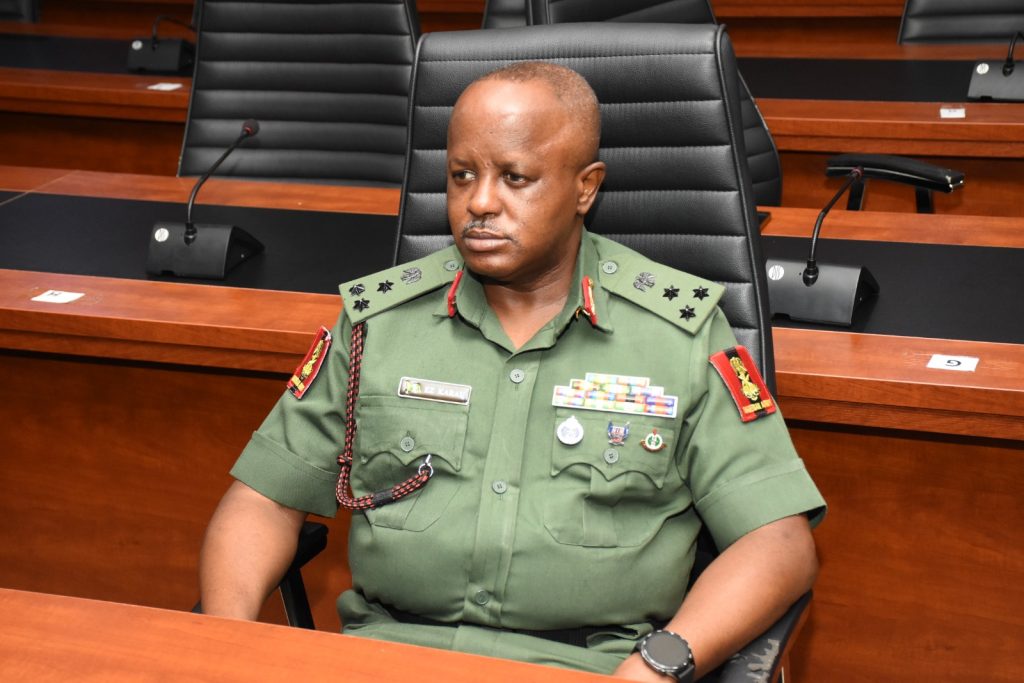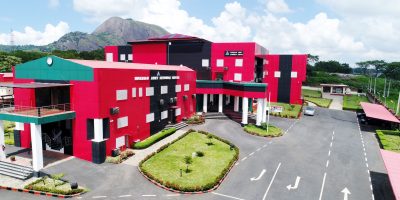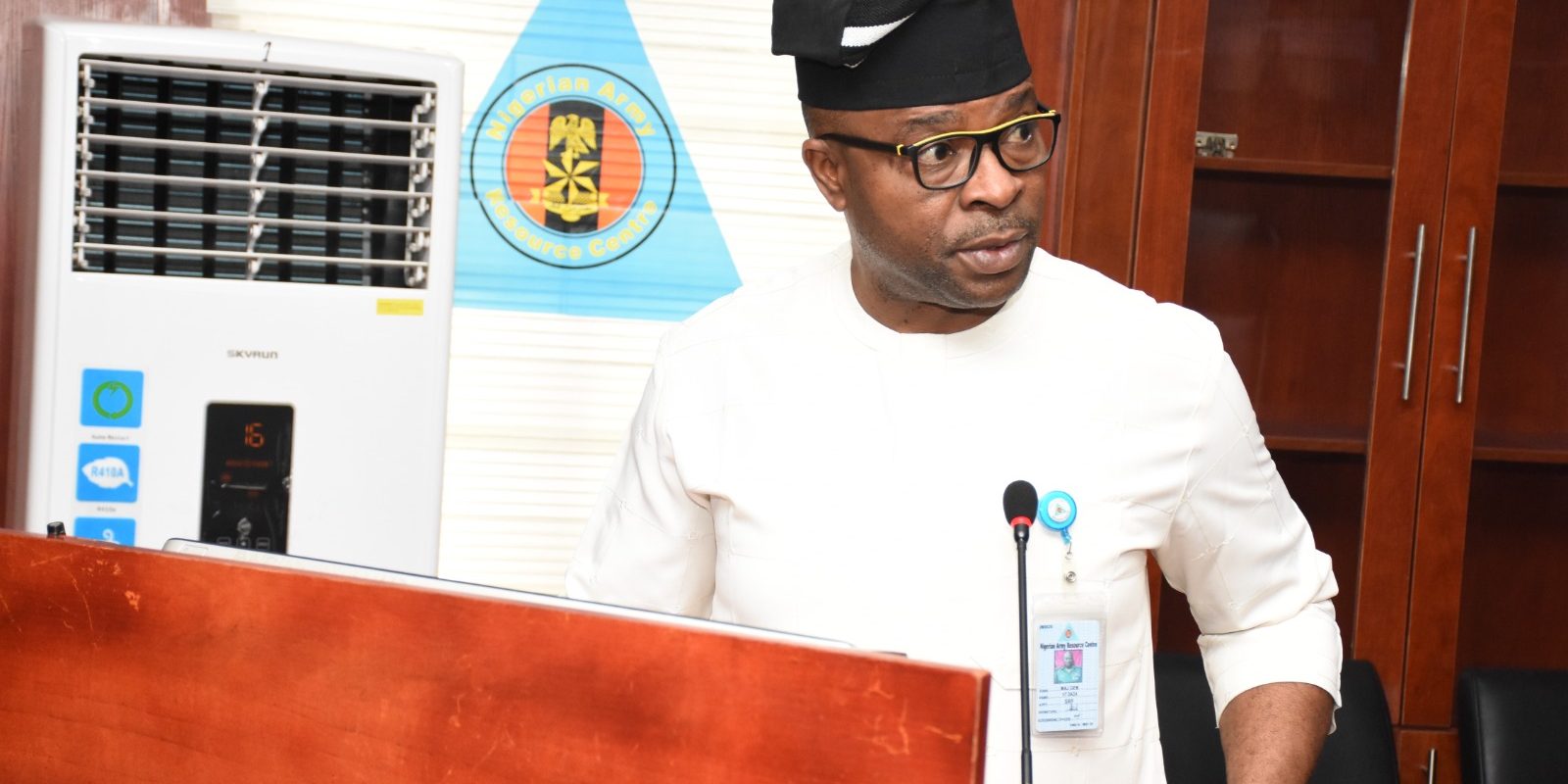Nigerian Army Resource Centre (NARC) Weekly Subject Experts’ Presentation was held at Hall C TY Buratai Block, Abuja. There were three presentations made by the Subject Experts on Nigeria, Western Europe East/Central Africa.
The first presentation was made by Maj Gen UN Babangida subject experts on Nigeria. His presentation Centered on how, Boko Haram invade another military base in Borno, captures, kill soldiers. On May 12, 2025, Marte, Borno State — Suspected Boko Haram insurgents have launched a deadly assault on a Nigerian Army base in Marte Local Government Area of Borno State, resulting in the deaths and capture of an unspecified number of soldiers. According to credible local and security sources, the attack occurred in the early hours of Monday, around 3:00 am, at the Forward Operating Base of the 153 Task Force Battalion. The assailants, believed to be members of the Islamic State West Africa Province (ISWAP), overran the base, dislodging the troops stationed there. “The troops were dislodged, and many soldiers were captured during the attack,” a source familiar with the incident said, speaking under condition of anonymity. “ISWAP has taken control of Marte.
An unspecified number of soldiers were killed, some captured, and many deserted. The surviving soldiers retreated towards Dikwa and are currently at the 24 Task Force Brigade. ”In the course of the raid, the terrorists reportedly set fire to several armoured tanks and carted away a cache of arms and ammunition from the military facility. Marte is located approximately 38 kilometers from Dikwa, the administrative center of Dikwa Local Government Area in Borno State. Following the attack, residents of Dikwa reported hearing heavy gunfire and observed a fighter jet from the Nigerian Air Force patrolling the skies, likely in response to the assault.
In his analysis and lessons for Nigeria, Maj Gen UN Babangida stressed out that, the successful invasion of a military base—especially one as strategic as the Forward Operating Base of the 153 Task Force Battalion—points to a critical failure in intelligence gathering and early warning systems. Either the threat was not detected, or the information was not acted upon swiftly. Nigeria must invest more in modern intelligence infrastructure, including the use of drones, satellite imagery, and human intelligence networks. Local communities should also be integrated into intelligence-sharing mechanisms. The fact that the attackers dislodged troops, captured soldiers, and looted weapons and armoured vehicles reflects growing operational capacity. ISWAP’s tactics have evolved, and their ability to overrun fortified locations signals a dangerous shift in threat dynamics. There is a pressing need to upgrade military tactics, training, and equipment. Counterinsurgency operations should prioritize mobility, adaptability, and rapid-response capabilities. Reports that soldiers fled or deserted point to issues related to troop morale, training and perhaps insufficient manpower or supplies. Desertions may also reflect fear and frustration among soldiers who feel under-supported. The Nigerian government must urgently address the welfare, training, and logistics needs of frontline soldiers. Providing adequate rest, timely payment, psychological support, and modern weapons is crucial.
He recommended that, Nigerian Armed Forces (AFN) should enhance on-ground and aerial surveillance in vulnerable areas to detect threats early and also Department of State Services (DSS) should improve intelligence sharing across agencies (Army, Air Force, Police, etc.) to prevent siloed information. They should also monitor former detainees and radical elements re-integrated into communities to avoid resurgence.
The second presentation was made by Maj Gen HT Dada subject experts on Western Europe. His presentation discussed on how, Germany’s Merz Vows to Build Europe’s Strongest Army. The Politico Newspaper on 14 May 2025 reported that, Germany will take more responsibility for Europe’s defence by building the strongest army in the EU. The Conservative Chancellor Friedrich Merz said in a wide-ranging speech in the Bundestag on Wednesday. Merz stated that “The federal government will provide all the financial resources that the Bundeswehr needs to become the strongest conventional army in Europe. This is more than appropriate for the most populous and economically strongest country in Europe”. The comments came after Merz made a historic U-turn on Germany’s fiscal policy, including a drastic loosening of the country’s constitutional debt break to potentially unlock hundreds of billions of euros of borrowing for defense. That cash can also be used to finance military support for Ukraine. Merz said “the purpose of bolstering the military would be to deter aggression. Our goal as a country is to have a Germany and a Europe that are together and so strong that we never have to use our weapons,”.
In his analysis and lessons for Nigeria, Maj Gen HT Dada noted that, Nigeria, as the most populous and largest economy in Africa, is dealing with complex security challenges like insurgency, banditry, and communal conflicts rather than conventional interstate threats. Nigeria’s defence spending is modest relative to its population and GDP as it’s focused on internal security and counter-terrorism operations.
Germany’s military buildup and increasing defence spending in Europe does not directly affect Nigeria’s military capacity in itself but could have an indirect effect on her collaborative efforts with Nigeria on training and defence procurement. Nigeria has several important lessons to learn from the way Germany plans to tackle her military development and national security. These lessons include the need for; force strength expansion, modernization, increased defence spending, improved military industrial complex and strengthening strategic influence within the sub-region.
He recommended that, The FGN should incentivize local R&D through partnerships between the military, universities and private sector to promote indigenous production of small arms, vehicles and communication equipment.
The third presentation was made by Brig Gen ED Idimah subject experts on East and Central Africa. His presentation Centered on how, Congolese Refugees In Burundi Face Humanitarian Emergency On 7 May 2025, Doctors Without Borders also known as Medecin Sans Frontières (MSF) in a press release raised an alarm that thousands of Congolese refugees in Burundi’s Musenyi displacement site face a humanitarian. Emergency due to overcrowding and poor living conditions. The site, designed for 10,000 people, now shelters over 18,000 refugees, leading to health risks. Médecins Sans Frontières (MSF) has launched an emergency response, distributing mosquito nets and setting up isolation units to prevent cholera outbreaks. MSF has also vaccinated over 8,500 children against measles. Médecins Sans Frontières (MSF) has launched an emergency response, distributing mosquito nets and setting up isolation units to prevent cholera outbreaks. MSF has also vaccinated over 8,500 children against measles.
In his analysis and lessons for Nigeria, Brig Gen ED Idimah stressed out that, Nigeria can draw several important lessons from the situation in Burundi’s Musenyi displacement site to be site to better support its own citizens displaced across Cameroon, Chad, and Niger due to insurgency: Firstly, there is a need for Nigeria to collaborate with host countries and international partners to ensure that camps and settlements have adequate infrastructure and are scalable to prevent overcrowding and associated health risks. Secondly, Nigerian authorities and their partners need to prioritize rapid medical responses, mobile clinics, and preventive care (e.g., vaccination drives and disease surveillance) for its refugees. Furthermore, Nigeria could partner with international NGOs and UN agencies to provide technical support, funding, and manpower where government capacity is limited.
Additionally, Nigeria should establish a regional monitoring system to track the condition of Nigerian refugees abroad and respond proactively.
He recommended that, The FGN should lead a regional monitoring system in collaboration with ECOWAS and AU to track refugee conditions and emerging threats.
